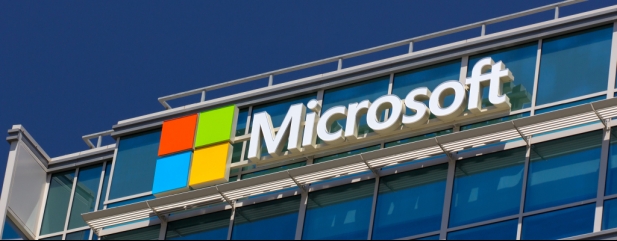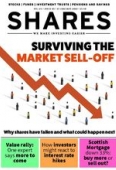Archived article
Please note that tax, investment, pension and ISA rules can change and the information and any views contained in this article may now be inaccurate.
The reasons behind Microsoft's $68.7 billion Activision Blizzard gamble

Microsoft has never been afraid to take risks with big acquisitions. Past deals for Skype ($8.5 billion), Nuance ($19.6 billion) and LinkedIn ($26.2 billion), in internet communications, transcription software and professionals networks respectively, prove that. But investors can expect the aftershocks of its swoop for gaming giant Activision Blizzard to reverberate for some time to come.
Offering $95 a share, the deal values the Call of Duty, World of Warcraft and Candy Crush owner at around $68.7 billion, the largest in the brief history of the video games industry, and grossly overshadowing the $7.5 billion Microsoft paid for computer games firm Bethesda in 2021. As such it represents Microsoft’s biggest gamble yet.
WHAT ARE THE IMPLICATIONS OF THE DEAL
Will this mean Call of Duty becoming an Xbox console exclusive? Is this predominantly a play for mobile, given social and mobile games firm King’s presence in Activision’s stable and Microsoft’s thin pickings in that space? What does this mean for Game Pass, Microsoft’s subscription service with 25 million paying users?
The questions come quicker than answers but perhaps most prominently, why is Microsoft buying Activision Blizzard given the ongoing investigation into the company’s alleged history of employee abuse and harassment and the numerous lawsuits that the investigation has resulted in?
Frankly, who knows, because the official line gave no more clues than you would expect from an announcement that likely passed the desks of dozens of lawyers before being seen by the market. What we do know, as far as analysts and fund managers say, is that buying Activision Blizzard is about much more than gaming for Microsoft.
The deal gives Microsoft full access and control over gaming content generation, and should accelerate its growth potential in this field across mobile, PC and console devices. There are also strong synergistic benefits, in terms of software development and applications, and further growing the utilisation of Azure, Microsoft’s cloud business.
ADDING VALUE
‘The outstanding engineering talent in Microsoft can add huge additional value to games,’ says Gerrit Smit, manager of the Stonehage Fleming Global Best Ideas Equity Fund (BCLYMF3) where Microsoft is its second largest stake.
But beyond this, with its own expertise on the metaverse, Microsoft can now create a ‘multi-faceted metaverse of gaming and wider entertainment with a good chance of becoming a leader in this new field,’ Smit believes.
The metaverse remains an abstract concept today but in simple terms, it is seen as the reimagined next generation of the internet, one where virtual reality, augmented reality, mobile devices, personal computers and cloud-connected servers combine to create a 3D virtual universe, one where people can socialise, relax and play, and crucially, where money can be made.
Microsoft and Facebook-owner Meta Platforms are among the metaverse’s champions, but Apple, Qualcomm, Nvidia, Valve, Epic, HTC and many others share the dream of creating new ways of connecting online.
Buying Activision will possibly give Microsoft an early lead with a complete and self-sufficient future metaverse entertainment business, believes Smit, and he is not alone.
‘The Xbox producer is demonstrating not only its interest in solidifying its position in the exciting gaming space, but also could be Microsoft showing its hand by making a play for a slice of the metaverse pie,’ said Stephen Yiu, lead manager of the Blue Whale Growth Fund (BD6PG78).
‘With an extremely healthy balance sheet, investors should be pleased to see Microsoft putting its high cash reserves to constructive use,’ a fair point given dismally low interest rates.
This is a deal that should be immediately accretive to earnings on completion and, if managed well, it’s an acquisition where one plus one can add up to well over three over time, in Gerrit Smit’s opinion.
The deal will face regulatory scrutiny, with US watchdogs on high alert over tech M&A, so expect ‘plenty of noise around this transaction in the coming months,’ say Berenberg analysts, but they are confident it will be allowed.
METAVERSE M&A
In the meantime, investors can expect a lot more metaverse M&A as competitors jostle for position. ‘We expect all big tech companies to seek deals like this,’ Rolf Illenberger, managing director of VRdirect, a virtual reality experience designer. Illenberger believes that Epic Games is probably the most interesting Metaverse acquisition target around, with whispers of a stock market flotation frequently doing the rounds.
Back to Microsoft, the timing is interesting since it comes ahead of any official metaverse or virtual reality strategy from the company. This suggests that investors can expect news on this front from Microsoft in 2022 and 2023, especially when it comes to virtual reality devices. [SF]
What Microsoft’s move means for Sony
Shares in US electronics giant Sony fell 10% after Microsoft agreed to purchase Activision Blizzard.
Sony’s share price fall contrasted with other video gaming shares which went up on the news, reflecting the 46% premium offered by Microsoft. The deal follows another recent sector deal with Take Two purchasing Zynga for $12.7 billion.
The logic of the deal being negative for Sony seems to have some merit in that theoretically Microsoft could make all Activision Blizzard’s console games exclusive to its own Xbox which would rob Sony’s PlayStation of the associated revenues.
However, it is likely that regulatory scrutiny would negate such a move and Microsoft itself would also lose out on revenue, suggesting it is an unlikely scenario.
But the deal could spark further merger and acquisition activity in the sector because it transforms the landscape and potentially gives Microsoft an edge developing virtual online worlds.
Investment bank Berenberg points out that Activision Blizzard’s portfolio will significantly boost Microsoft’s gaming diversity, particularly in mobile and free-to-play content, where it is relatively weak.
Sony likewise has a relatively small presence in mobile which only represents around 4% of its revenues.
The implication is that Sony may feel the need to beef up its mobile and online marketplaces offerings and Berenberg suggests Electronic Arts as a potential target given the quality and breadth of its content including free-to-play and mobile games. [MGam]
DISCLAIMER: The author Steven Frazer owns shares in Blue Whale Growth Fund referenced in this article
Important information:
These articles are provided by Shares magazine which is published by AJ Bell Media, a part of AJ Bell. Shares is not written by AJ Bell.
Shares is provided for your general information and use and is not a personal recommendation to invest. It is not intended to be relied upon by you in making or not making any investment decisions. The investments referred to in these articles will not be suitable for all investors. If in doubt please seek appropriate independent financial advice.
Investors acting on the information in these articles do so at their own risk and AJ Bell Media and its staff do not accept liability for losses suffered by investors as a result of their investment decisions.

 magazine
magazine










